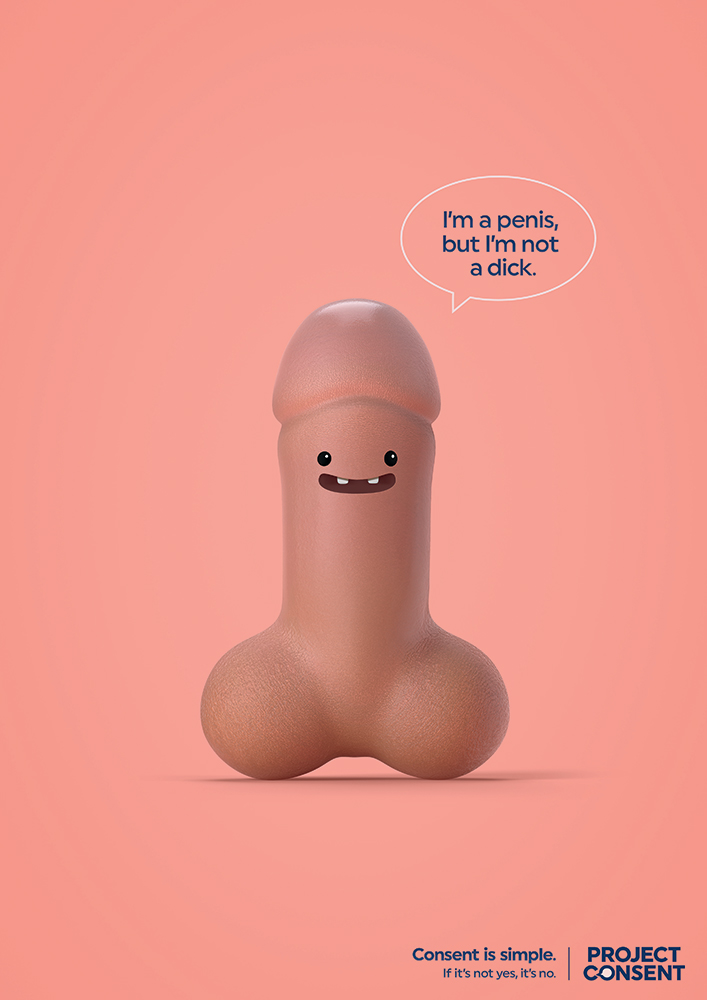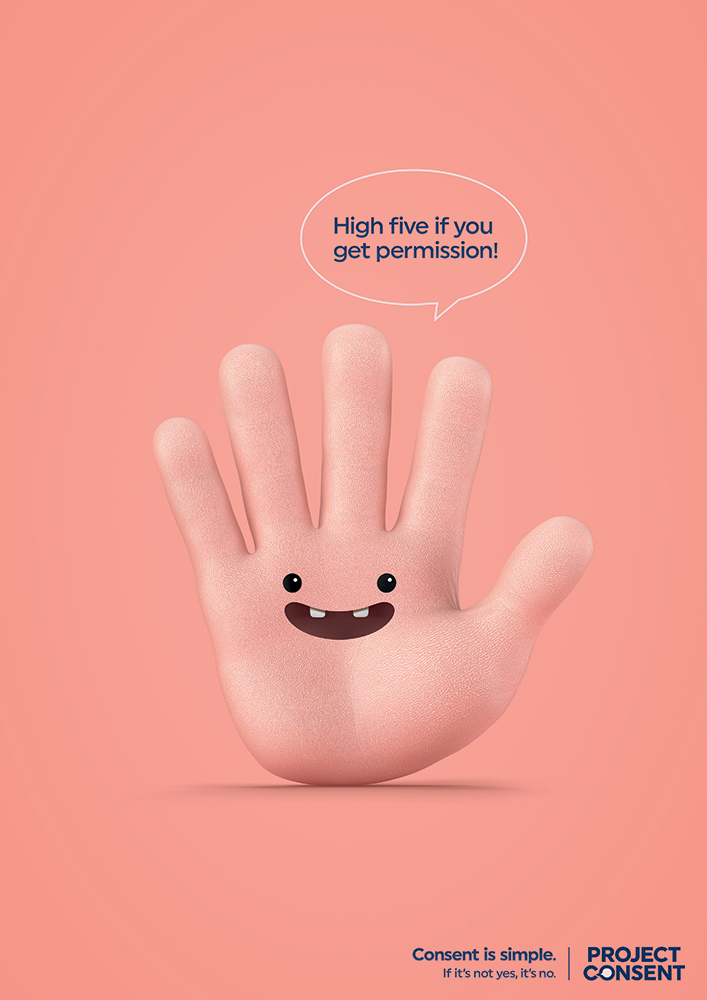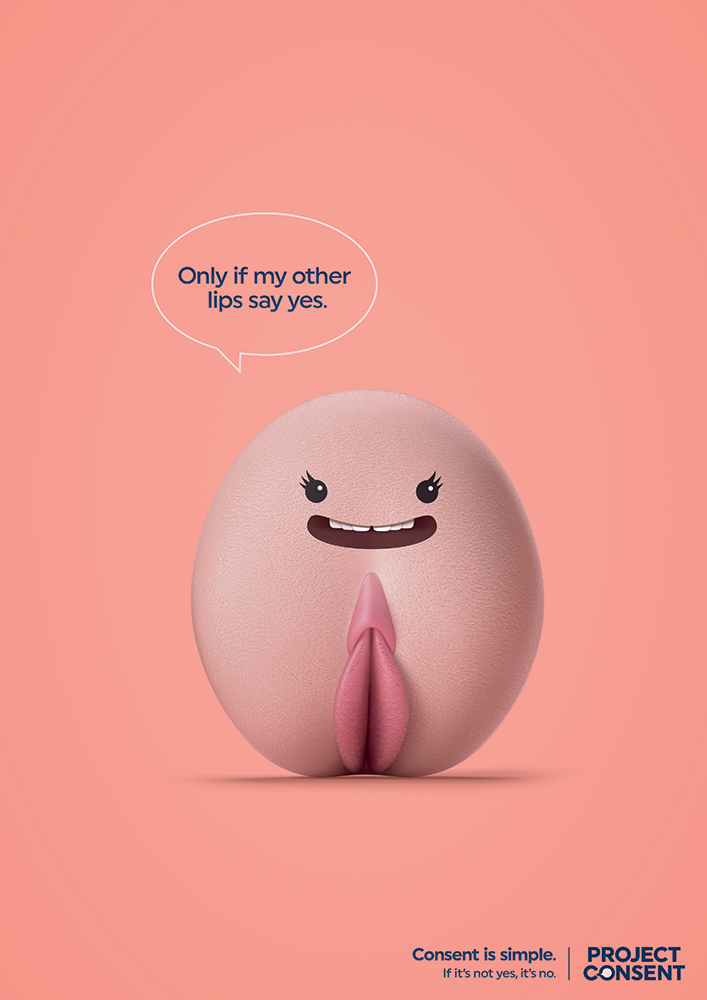Project Consent is a grassroots, not-for-profit organization with the goal to combat rape culture through positive dialogue about the importance of consent. Project Consent relies exclusively on word-of-mouth and unpaid affiliate support.
Sexual consent is a longstanding issue. However, the personal nature of the issue inhibits it from being an easily accessible topic for mainstream discussion. This leads to it being diluted in analogies, with the focus shifted to nuance versus the topic itself (for example, was drinking involved, was there a pre-existing sexual relationship, etc.). Last year's "Tea & Consent" video that used serving tea as an analogy for explaining sexual consent is a perfect example of this.
Sexual consent advocacy in North America is a cause shared by many organizations, each fighting for share of voice and influence over the conversation. Major players, like the Ontario Government's "#ItsNotOkay" cause, and the U.S. initiative "It's On Us" are well-financed and, as a result, monopolize share of voice. Smaller organizations, like Project Consent, B.C. based SWOVA, among numerous others, don't have the financial support to generate significant awareness, and therefore their impact is limited.
The world does not need an additional, polite analogy to ambiguously explain the meaning of sexual consent. The organization needed to break convention, and instead define it clearly without any barriers or excuses to understanding.
The "If it's not yes, it's no" campaign featured five characters: a penis, vagina, breast, buttocks and a hand. These characters clearly demonstrate the need for consent, within the context of relatable sexual social situations.
Working with Juniper Park\TBWA, the organization developed shareable content, which was critical given that there was zero media budget.
To capitalize on the potential for earned media, the agency and charity launched the campaign during Spring Break (Feb 25 to Mar 7, 2015), a period when this topic would have heightened contextual relevance.
The key media vehicle was a press release sent to major Canadian media outlets. It contained information about the organization, Project Consent, its goal, and the campaign's creative assets. The top 10 Canadian media outlets also received cookies shaped like the campaign characters (penis, vagina, breast, buttocks) in their media kits.
The agency connected directly with influencers involved in the consent conversation via social media and email, asking them to share Project Consent's message and content.
During the 10 day campaign, Juniper Park\TBWA used social listening to identify timely cultural conversations to attach the message. The content was shared across Facebook, Twitter and Instagram. The monitoring also enabled the agency to focus the content push towards audiences where engagement and reception was strongest.
The team engaged in consent-themed Twitter chats to amplify content and solicit support from consent advocacy groups and stakeholders. In addition, they adapted creative assets into posters for the University of Toronto campus. The agency also created apparel for the students at the university, which included male and female underwear with campaign messages on them.
The campaign immediately went viral – achieving 411 million campaign impressions (more than 40x greater than the 10 million goal). Project Consent achieved 14% share of voice (vs. the original goal of 6%). The campaign was shared in over 231 countries worldwide.
The campaign earned press across outlets such as Huffington Post, MacLeans, Strategy, Cosmopolitan, Self, Mirror, AdWeek, BuzzFeed, Women's Health, Men's Journal, among others.
In only 10 days, the campaign videos earned more than eight million video views on YouTube, and generated a 1,859% increase in YouTube subscribers to the Project Consent page.
On Facebook, the campaign content achieved 43 times more reach than Project Consent's average content. Page likes increased by 495% and engagement rates were 8% higher than Facebook's industry average. On Twitter, it also achieved 27 times more reach than Project Consent's average content. Followers increased by 332% and engagement rates were 14% higher than Twitter's industry average.


